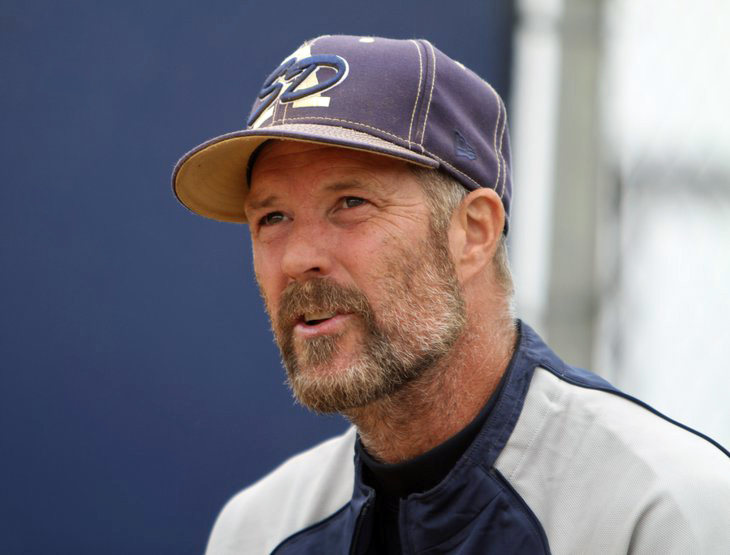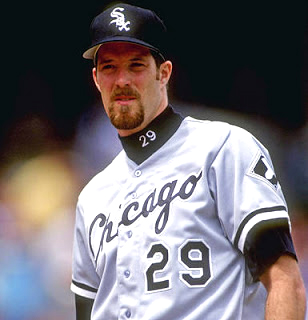Just before Christmas the Dodgers announced their minor league coaching staffs for 2014. Damon Berryhill was promoted from the Rookie League Ogden Raptors to the AAA Albuquerque Isotopes. Lee Tinsley, who had served as the minor league outfield and base running coordinator for the Chicago Cubs from 2011-2013 was named manager of the Raptors. However, another opportunity came along – a better one – and Tinsley joined the Cincinnati Reds as assistant hitting coach instead.
For a period of time the Raptors were without a manager and with minor league players soon reporting to spring training it became increasingly important to name a manager for the team. I had thought that Johnny Washington, the Rancho Cucamonga Quakes hitting coach in 2013, may become the Raptors manager. There is little doubt he is managerial material but perhaps at age 29 he is considered to be too young. He has been assigned to the Great Lakes Loons as the hitting coach for 2014 so perhaps he is seen as more valuable as a hitting coach.
I also thought that Jerry Hairston Jr. who retired from the Dodgers following the 2013 season might be a candidate to manage the Rookie League Raptors. Hairston, who seems to own a perpetual smile, is a personable, knowledgeable veteran who forged out a career in MLB as a versatile, hard worker during his sixteen year career in which he played multiple positions with nine different teams. He has joined the Dodgers broadcasting crew on SportsNet LA for the 2014 season. I will not be surprised if at some point he becomes a coach or manager in the Dodgers farm system.
The Dodgers have officially announced that Jack McDowell will be the Raptors manager in 2014. McDowell, in his enthusiasm, made his own announcement regarding the appointment towards the end of January. He had gone to the MLB Winter Meetings looking for work as a pitching coach or as a broadcaster – two jobs he felt would best suit his strengths. “There’s two things we can do if you want to stay in the game – one is talk about it and one is coach it and I’m kind of in between,” McDowell said. “Just kind of putting feelers out to see what I might like to do. I think I can be successful at both of them, it just depends.” He most likely had hoped the White Sox, perhaps knowing the most about his talents, would be a prospective suitor. The White Sox made no offer but the Dodgers offered him a consulting position which has now evolved into a managerial position.
Jack McDowell was drafted by the Red Sox in the 20th round of the 1984 amateur draft . He chose not to sign but rather attend Stanford University where the awards kept coming his way. He was the Co-Freshman of the Year in 1985, a second team All-American in 1986 and a third team All-American in 1987. He helped lead the Cardinal team to the 1987 College World Series Championship. On June 2, 1987 the Chicago White Sox selected him in the first round (5th pick) of the First year Player Draft. Ken Griffey Jr. was the first overall pick in that draft. The Dodgers drafted Dan Opperman in the eighth round while Lee Tinsley was drafted by the Oakland Athletics in the eleventh round.
McDowell reported to the Birmingham Barons of the AA Southern League once his college play ended. After only six games in the minor leagues, he made his Major League debut with the White Sox on September 15, 1987 at age 21. He pitched seven shutout innings against the Minnesota Twins that day to pick up the win. In four starts, he was 3-0 with a 1.93 ERA.
During his MLB career Jack McDowell compiled a 127-87 won-loss record with a 3.85 ERA while pitching for the White Sox, Yankees, Indians and Angels. He retired from active duty prematurely at age 33. While undergoing a procedure on his pitching arm, an arthroscope placed in his elbow traumatized a nerve, permanently paralyzing a forearm muscle. McDowell also was born with an arthritic hip so all during his pitching career he had to accommodate the hip problem.
“Black Jack” McDowell definitely earned his nickname given to him by White Sox broadcaster Ken Harrelson. Although somewhat a stickfigure at 6’ 5” and 180 pounds he was reminiscent of Don Drysdale on the mound – all business’ with piercing eyes, glaring and almost daring hitters to hit his fastball or his split fingered pitch described as devastating. Andrew Reilly described another Jack McDowell characteristic that could have been attributed to Drysdale: “ He went after batters. He threw inside and he threw inside hard.” His mound presence was reflected in his performance. From 1990 through 1994, McDowell won more games than any other pitcher in major league baseball.
Even before retirement Jack McDowell pursued his other love – music. He formed two bands . The first one in 1989 named V.I.E.W. consisted of McDowell and fellow baseball players Lee Plemel and Wayne Edwards They produced two albums: Extendagenda and Replace The Mind. The band broke up in 1992. Their most notable accomplishment most likely was touring with The Smithereens in 1992. His second band, appropriately named stickfigure, consisted of McDowell, Michael Hamilton, Mike Mesaros and Frank Funaro. The group produced four albums: Just a Thought, Feedbag, Ape of the Kings, Memonto Mori before the group disbanded in 2003.
For the last seven years, McDowell, 48, has been coaching high school baseball at San Dieguito Academy in Encinitas, Calif. Starting out casually he soon became the head coach and discovered something about himself: “What I learned about myself was that I’m a baseball geek,” McDowell said. “That’s all we thought about 24-7 was our little high school team.” It was no longer just a game but a passion returned for the former major leaguer.

McDowell will return to professional baseball after serving as head coach at the San Dieguito Academy in Encinitas, CA.
(Photo courtesy of U-T San Diego)
So what kind of manager will Black Jack McDowell be? Gregory Pratt, offers some clues from his interview with McDowell:
“McDowell is a purist, intense and articulate in his belief that the game of baseball needs to be played and coached flexibly but given utmost respect.” McDowell continued in the interview:” I like to look at things and ask how many ways we can get out of something or get something to work. We live in an age of mechanics, statistics, pitch-counts – and nobody lets kids develop their own styles.”
Pratt writes that McDowell started on a riff about how much “babying there is [in baseball] today. Too much coddling.”
Like Don Drysdale, Jack McDowell is not a big fan of a pitch count. “The pitch count is accepted as a science. But it’s the furthest thing from science. When you think of science, you think of testing something against other things, of taking variables and controlling them. There’s no way you can blanket ‘100’ as a pitch count for everyone.”
McDowell is pleased to have a managerial job rather than being strictly a pitching coach. His passion is for the overall game and he loves the teaching part of the game which is the main job in the low minor leagues. He concludes: “I think it will be a lot of fun.”
I do too, Black Jack.




 February 15th, 2014 at 6:00 am
February 15th, 2014 at 6:00 am  by Harold Uhlman
by Harold Uhlman 
 Posted in
Posted in 

Hoping to meet Jack at Camelback Ranch next week, along with P.J. Forbes – the Quakes new manager.
Hope I didn’t tick him off and cause a problem for you. LOL.
He has recently spoken out about steroids.